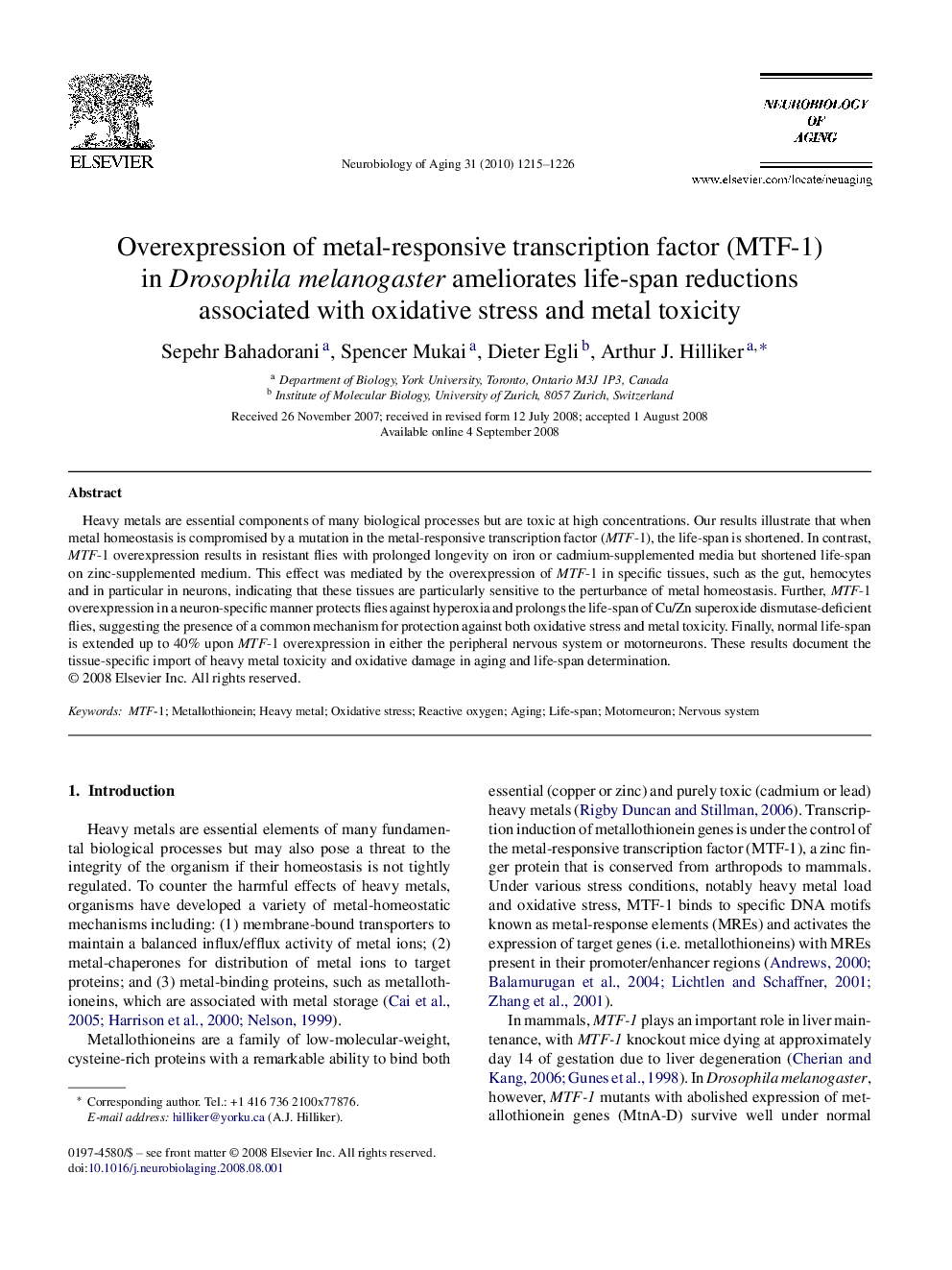| Article ID | Journal | Published Year | Pages | File Type |
|---|---|---|---|---|
| 331075 | Neurobiology of Aging | 2010 | 12 Pages |
Heavy metals are essential components of many biological processes but are toxic at high concentrations. Our results illustrate that when metal homeostasis is compromised by a mutation in the metal-responsive transcription factor (MTF-1), the life-span is shortened. In contrast, MTF-1 overexpression results in resistant flies with prolonged longevity on iron or cadmium-supplemented media but shortened life-span on zinc-supplemented medium. This effect was mediated by the overexpression of MTF-1 in specific tissues, such as the gut, hemocytes and in particular in neurons, indicating that these tissues are particularly sensitive to the perturbance of metal homeostasis. Further, MTF-1 overexpression in a neuron-specific manner protects flies against hyperoxia and prolongs the life-span of Cu/Zn superoxide dismutase-deficient flies, suggesting the presence of a common mechanism for protection against both oxidative stress and metal toxicity. Finally, normal life-span is extended up to 40% upon MTF-1 overexpression in either the peripheral nervous system or motorneurons. These results document the tissue-specific import of heavy metal toxicity and oxidative damage in aging and life-span determination.
